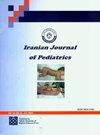铅和锌对哮喘的影响:系统回顾和荟萃分析
IF 0.4
4区 医学
Q4 PEDIATRICS
引用次数: 0
摘要
近几十年来,越来越多的工厂和车辆加速了重金属等环境污染物的排放。这些可吸入污染物常引起呼吸道疾病,危害人体健康。另一方面,一些重金属(如锌)是有益的微量营养素,在人体中起着至关重要的作用。目的:本系统评价和荟萃分析研究旨在探讨铅(Pb)和锌(Zn)在哮喘中的作用。方法:在PubMed、Google、Web of Sciences、Google Scholar和SID数据库中检索MeSH关键词,包括lead、asthma和zinc,以及它们在波斯语中的对应词。收录了2000年至2018年间发表的文章。为了评估异质性,采用Q和I2统计量。使用STATA version 14进行数据分析。按照系统评价和荟萃分析的首选报告项目(PRISMA)声明进行评价。结果:哮喘发生率为12% (95% CI: 11 ~ 13%, P < 0.001)。对照组和哮喘患者的高血铅(BLL)发生率分别为2% (95% CI: 0 ~ 2.03, P < 0.001)和3% (95% CI: 0 ~ 3.04, P < 0.001)。BLL < 5、5 ~ 10和> 10µg/dL的比例分别为8% (95% CI: 0 ~ 9.7, P < 0.001)、10% (95% CI: 0.8 ~ 11, P < 0.001)和9% (95% CI: 0.08 ~ 11, P < 0.001)。用力呼气量(FEV)与锌水平显著相关。meta回归分析结果显示,2000 - 2018年哮喘发病率呈上升趋势。结论:虽然锌可能对哮喘有保护作用,但铅是呼吸系统疾病和哮喘的危险因素。教育儿童及其父母有关铅中毒的知识可能预防或减少儿童铅中毒和哮喘。本文章由计算机程序翻译,如有差异,请以英文原文为准。
The Effects of Lead and Zinc on Asthma: A Systematic Review and Meta-Analysis
Context: In recent decades, the growing number of factories and vehicles has accelerated the release of environmental contaminants such as heavy metals. These inhalable pollutants often cause respiratory diseases and can endanger human health. Some heavy metals (e.g., zinc), on the other hand, are beneficial micronutrients, playing critical roles in the body. Objectives: This systemic review and meta-analysis study aimed to examine the role of lead (Pb) and zinc (Zn) in asthma. Methods: MeSH keywords, including lead, asthma, and zinc, along with their Persian equivalents were searched in the PubMed, Google, Web of Sciences, Google Scholar, and SID databases. The articles published between 2000 and 2018 were included. For assessing heterogeneity, the Q and I2 statistics were applied. STATA version 14 was used for data analysis. The review was conducted in accordance with the preferred reporting items for systematic reviews and meta-analyses (PRISMA) statement. Results: The frequency of asthma was 12% (95% CI: 11 - 13%, P < 0.001). The frequencies of high blood lead levels (BLL) in controls and patients with asthma were 2% (95% CI: 0 - 2.03, P < 0.001) and 3% (95% CI: 0 - 3.04, P < 0.001), respectively. The ratios of BLL of < 5, 5 - 10, and > 10 µg/dL were found to be 8% (95% CI: 0 - 9.7, P < 0.001), 10% (95% CI: 0.8 - 11, P < 0.001), and 9% (95% CI: 0.08 - 11, P < 0.001), respectively. The forced expiratory volume (FEV) was significantly correlated with zinc level. The results from meta-regression analysis suggested an increasing trend in asthma occurrence from 2000 to 2018. Conclusions: While zinc may have been protective against asthma, lead was a risk factor for respiratory diseases and asthma. Educating children and their parents about lead poisoning may have prevented or reduced lead intoxication and asthma in children.
求助全文
通过发布文献求助,成功后即可免费获取论文全文。
去求助
来源期刊
CiteScore
0.90
自引率
20.00%
发文量
75
审稿时长
6-12 weeks
期刊介绍:
Iranian Journal of Pediatrics (Iran J Pediatr) is a peer-reviewed medical publication. The purpose of Iran J Pediatr is to increase knowledge, stimulate research in all fields of Pediatrics, and promote better management of pediatric patients. To achieve the goals, the journal publishes basic, biomedical, and clinical investigations on prevalent diseases relevant to pediatrics. The acceptance criteria for all papers are the quality and originality of the research and their significance to our readership. Except where otherwise stated, manuscripts are peer-reviewed by minimum three anonymous reviewers. The Editorial Board reserves the right to refuse any material for publication and advises that authors should retain copies of submitted manuscripts and correspondence as the material cannot be returned. Final acceptance or rejection rests with the Editors.

 求助内容:
求助内容: 应助结果提醒方式:
应助结果提醒方式:


